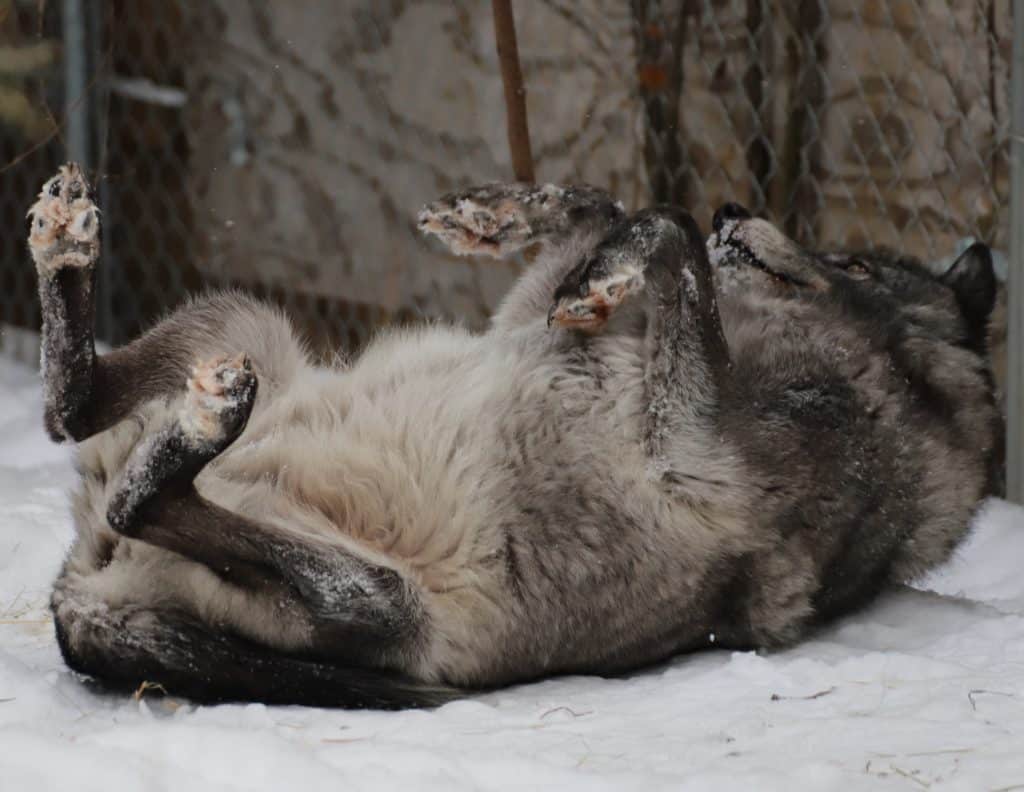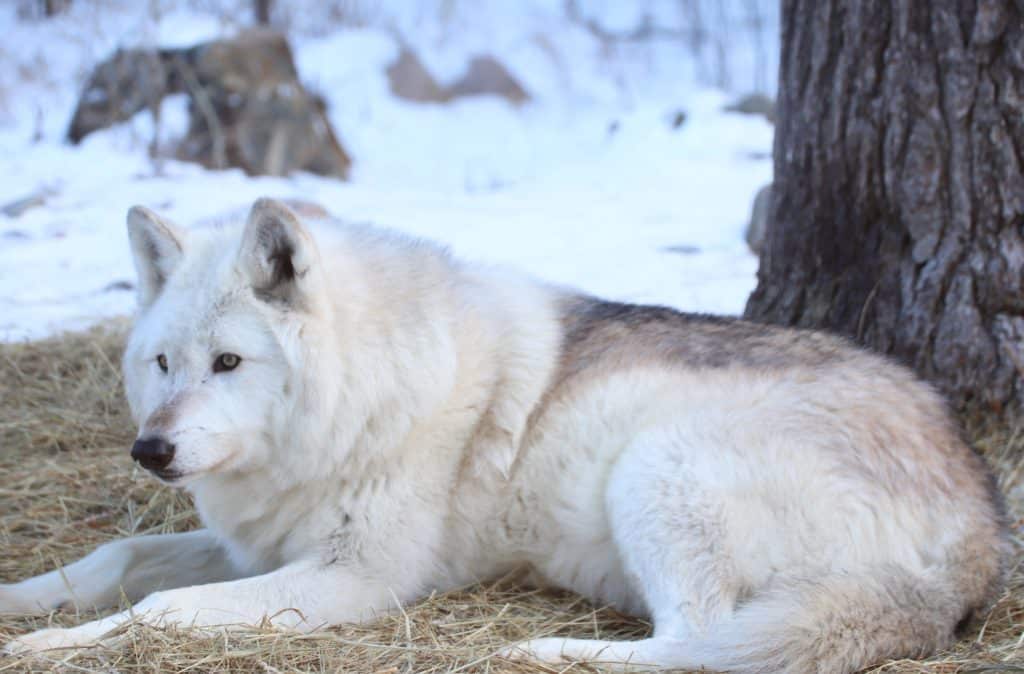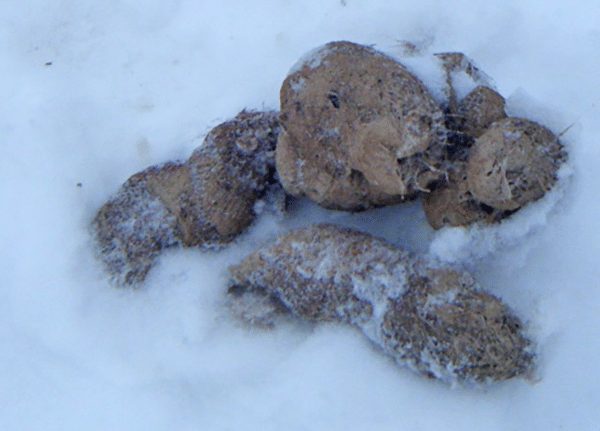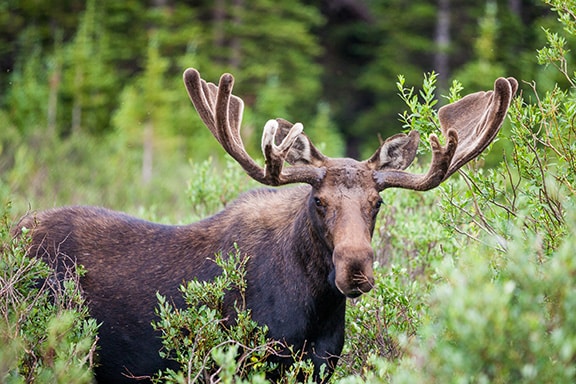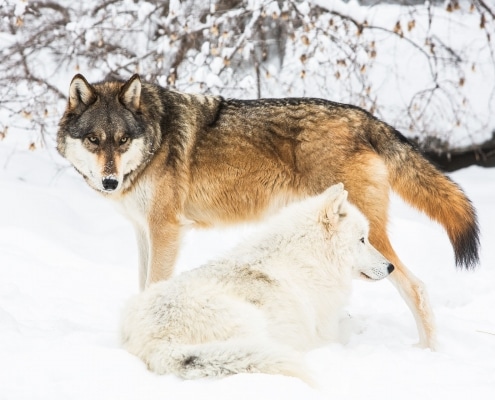Interested in learning more about wolves? We’ve compiled a list of key vocabulary words to expand your understanding. Take a look at the definitions below to increase your knowledge.
Adapt: To adjust or change to a specific location or situation.
Behavior: What an animal does; its reactions or actions under specific conditions.
Biologist: A person who studies living organisms, life processes and/or the animal and plant life of a particular place. Biologists also study the relationship of living things to one another.
Cache: a hiding place used for storing food if there is an abundance of meat from a kill.
Camouflage: Something that allows an animal to blend into its natural surroundings
Canis lupus: The scientific name for the gray wolf.
Carnivore: An animal that eats meat.
Den: A shelter, often a small cave or hole dug out of the ground, to protect the mother wolf and her young pups from weather and other animals.
Dominance: Showing power or higher social ranking
Elude: To get away or escape
Habitat: The natural environment of a species (plant or animal) that provides the food, water, shelter or cover and space required for it to survive. Forests, deserts and lakes are but a few examples of habitats.
Litter: A group of offspring (babies) produced at one time by a mammal
Pack: A family of wolves that lives and works together to hunt for food and take care of the pups. It usually consists of a male and female parent (the breeding male and the breeding female or breeding pair) and their offspring from one or more generations.
Predator: An animal that lives by eating other animals
Prey: An animal that is captured and eaten by another animal.
Rendezvous site: A place where the pack moves when the pups are big enough to leave the den. The adults will leave the rendezvous site to hunt but come back to eat, play and sleep. The pack will use the site until the pups are large enough to travel.
Scat: Fecal matter or feces.
Telemetry: The use of electronic equipment to locate a distant source. Researchers use telemetry equipment, such as receivers and antennae, to locate signals emitted from radio collars worn by wolves in their study groups.
Track: A print left by an animal.
Ungulate: A hoofed mammal, such as deer, elk, mountain goat, bighorn sheep, moose, antelope, caribou and bison.
Wildlife: Animals that are not tamed or domesticated. Wildlife can range in size from microscopic organisms to animals as large as whales.
Try these fun activities using the vocabulary words above:
- SEEK & FIND Try to find these words on our website or in a book, newspaper, magazine, billboard, Kindle/Nook or iPad.
- MAKE A LIST Use these words to start your own list and see if you have any other words you could add to this list!
- LANGUAGES Learn wolf vocabulary words in another language like Spanish, French, Indian, Russian or even American Sign language.
- CHARADES Play charades and use the verbs, or action words, above. Cut up some scratch paper. Write one verb on each piece and fold it up. Put all paper into a bowl or hat and choose a word to act out. Have your friends guess which verb you are acting out.
- SCAVENGER HUNT Make a scavenger hunt using some of the wolf vocabulary words above and go for a hike with family in search of the animal sign on your list.

